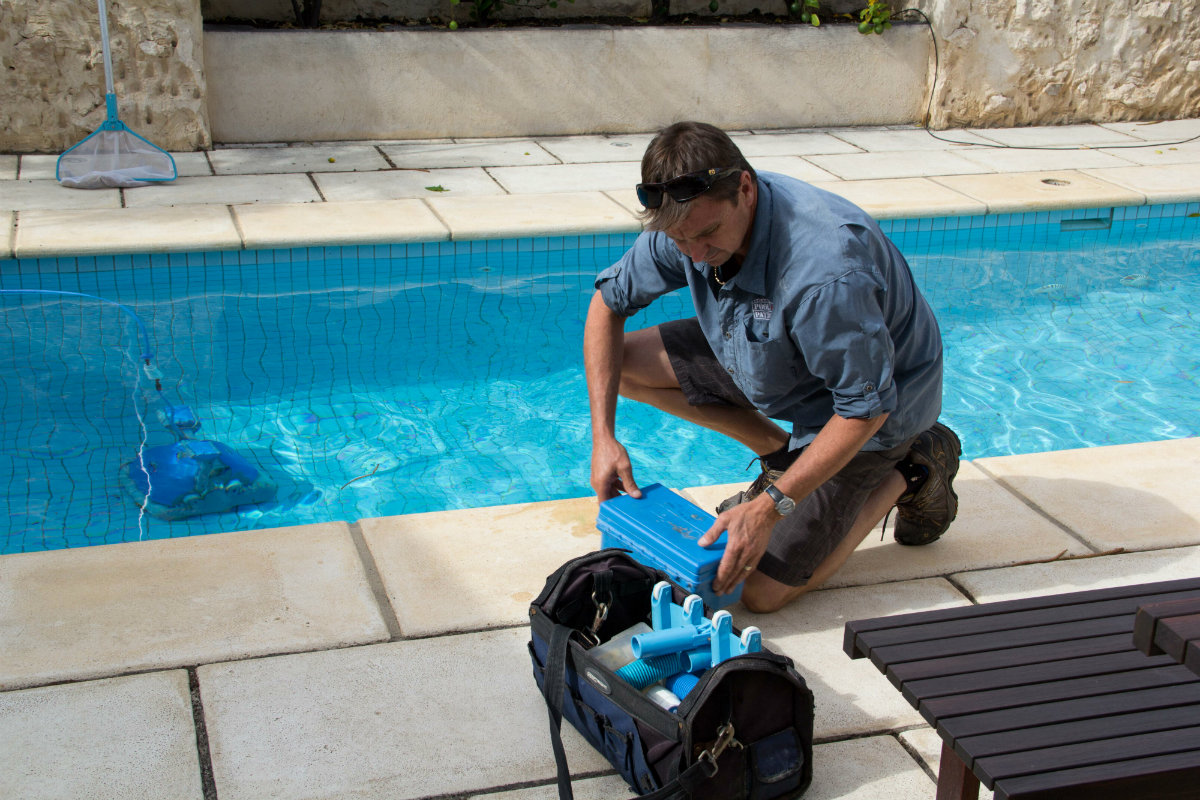In the scorching summer heat, there's nothing quite as enticing as a refreshing dip in the pool. But what happens when your beloved oasis starts showing signs of wear and tear? pool repair Boca Raton fret! With pool repair Boca Raton of know-how and some ingenious budget-friendly tips, you can breathe new life into your pool without breaking the bank.
Pool repairs may seem like a daunting task, but fear not! We've got you covered with five simple yet effective tips to help you navigate the world of pool maintenance. Whether it's a leaky pipe, a clogged filter, or a chipped pool lining, these strategies will aid you in reviving your pool's splendor while keeping your finances intact. So, grab your toolbox and let's dive into the world of thrifty pool repairs!
1. Regular Maintenance and Cleaning
Regular maintenance and cleaning are essential for keeping your pool in excellent condition. By following these simple tips, you can save money on pool repairs in the long run.
Skimmer and Filter Cleaning: One of the most important aspects of pool maintenance is regularly cleaning the skimmer and filter. These components help to remove debris and dirt from the water, ensuring that it stays clean and clear. Make it a habit to check and clean your skimmer basket at least once a week. Additionally, backwashing or cleaning your filter, as recommended by the manufacturer, will help improve its efficiency and prolong its lifespan.
Brushing and Vacuuming: Brushing the walls and floor of your pool on a regular basis will prevent the buildup of algae and other unwanted substances. You can use a nylon brush with a telescopic pole to reach all areas of the pool. Vacuuming the pool removes any dirt or debris that may have settled on the floor, keeping the water crystal clear. Make sure to clean the vacuum filter or bag after each use for optimal performance.
Water Chemistry Balance: Maintaining the correct chemical balance of your pool water is crucial for preventing damage and costly repairs. Regularly test the water using a pool water testing kit to monitor pH levels, chlorine, alkalinity, and calcium hardness. Adjust the levels as needed to keep the water balanced. Unbalanced water can lead to corrosion, scaling, and the formation of bacteria. Follow Boca Raton pool repairs provided by your pool chemical supplier or consult a professional for accurate dosage recommendations.
By implementing these routine maintenance and cleaning practices, you can extend the lifespan of your pool equipment, minimize the need for major repairs, and enjoy a well-maintained pool all year round. Keep an eye out for the next sections to discover more budget-friendly pool repair tips.
2. DIY Repairs and Troubleshooting
In this section, we will explore some do-it-yourself solutions for common pool repair issues. Whether you're dealing with leaks, cracks, or malfunctioning equipment, these budget-friendly tips can help you save money while keeping your pool in top shape.
Leak Detection and Repair: One of the most common problems pool owners face is a leak. To identify and fix a leak, start by conducting a thorough visual inspection of your pool's plumbing system. Look for any visible cracks, loose fittings, or damaged valves. You can also perform a bucket test to determine if water loss is due to evaporation or a leak. If you find a leak, consider using an underwater epoxy or pool putty to patch it up. Remember to always follow the manufacturer's instructions for any repair products you use.
DIY Pool Cleaning: Regularly cleaning your pool can help prevent potential issues and improve overall performance. Use a skimmer net to remove leaves, debris, and bugs from the water surface. Scrub the walls and floor of the pool to remove algae and other build-up. You can utilize a pool brush or attach a brush head to your pool pole for better reach. Additionally, make sure to clean out the skimmer and pump baskets to maintain proper water circulation.
Troubleshooting Pool Equipment: If your pool equipment is not functioning correctly, there are a few troubleshooting steps you can take before calling a professional. Check the power supply to ensure the equipment is receiving electricity. Inspect the equipment for any visible damage or loose connections. Sometimes, simply resetting the circuit breaker can resolve the issue. Refer to the manufacturer's manual or online resources for specific troubleshooting instructions related to your pool equipment model.
By following these DIY repair and troubleshooting tips, you can address common pool issues without breaking the bank. Remember to prioritize safety and always consult a professional if you are unsure or uncomfortable handling any repairs yourself.
3. Cost-effective Pool Equipment Options
Pool Filter: A key component of any pool system, a cost-effective option for pool filters is a cartridge filter. These filters are typically less expensive upfront compared to other types, such as sand or DE filters. Additionally, cartridge filters require less water for cleaning and maintenance, helping you save on water bills in the long run.
Pool Pump: Opting for an energy-efficient pool pump can significantly reduce your electricity costs. Look for a pump with a variable-speed feature, as it allows you to adjust the pump's speed depending on your pool's needs. This not only saves energy but also extends the lifespan of your pool equipment.

Pool Cover: Investing in a pool cover is a wise choice to prevent heat and water evaporation, which can lead to increased energy consumption and water bills. A solar cover, in particular, harnesses the sun's heat to warm your pool naturally, reducing your reliance on pool heaters. Moreover, it helps keep leaves, debris, and insects out of your pool, minimizing the need for frequent cleaning and maintenance.
Remember, when selecting pool equipment, always consider the long-term savings it can provide. Cost-effective options not only help you save money upfront but also contribute to reducing your overall pool maintenance expenses in the future.
